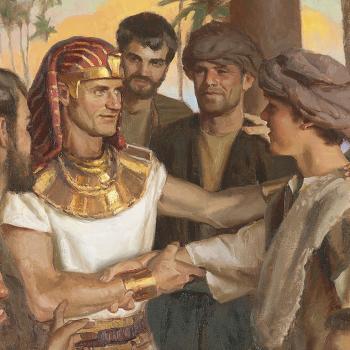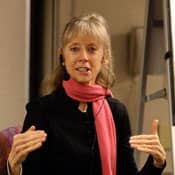The third criterion—"Whatever is agreeable to one's own self"—is crucial. You might "know" what the books say is the right thing to do. You might long to make the decision that Jesus or Buddha or one of your more saintly friends would have made. But if something feels wrong, then it is probably not your dharma, and that means that you probably shouldn't do it.
Feeling "right" about a course of action can be hard to distinguish from the resistance that comes up when we're trying something new and challenging. That's why we often have no choice but to walk a path for a while and see how it feels. A friend of mine, a talented teacher, was asked last year to lead a movement to re-organize his department and made a dean of his college. He accepted the job despite the fact that he hated administration because people kept saying that only he could save the department, and because he knew it needed to be done. A year later, the Dean's office was in chaos, the same people who had offered him the job were plotting to remove him, and my friend had developed an immune system disorder. He had taken on a dharma that didn't agree with him, and it blew up in his face. Later on, he described his year as a dean as a daily experience of shaving off corners of himself to fit into the job, like the proverbial square peg in a round hole. Yet he'd never have known it wasn't right for him if he hadn't tried.
It's the fourth criterion—"the desire that flows from a wholesome resolve"—that cuts to the heart of personal dharma. What is a wholesome resolve? It's essentially an unselfish motivation. The desire to help, to serve the situation, to accept responsibility for creating positive change, to benefit others are perhaps the most powerful forms of wholesome resolve. So are the motivations that come from the vows we take (out loud and silently)—the desire to preserve a family, to maintain good health, to love unconditionally, to complete a long or difficult project. Wholesome resolves are decisions that change the world for better, even in incremental ways. The two questions I've learned to ask when I'm wondering whether or not to start a project or jump in with a piece of advice, is "Will this help the overall situation?" and "Am I the person to do this?"
Yet, as the Yajnavalkya Samhita says, all of these methods for following the thread of dharma only really work when you're in touch with your Self, the inner awareness/being/joy that is the true measure of dharma. When people asked Swami Muktananda how to find their swadharma, their life-calling, he'd always say, "Your real swadharma is to know the truth of your inner being."
Sometimes his answer seemed to beg the questions we wanted answered, those burning life-questions like "Should I marry this person?" or "Should I go to graduate school or take a job?" Only later, after years of meditation and self-inquiry brought me into the kind of relationship with my own heart that couldn't be overturned by a bad day or a difficult decision, did I come to understand what a good piece of advice he was giving us. The awareness that comes when we steadily turn into the "I am" beyond all our transient I's, is the only infallible guide to all questions of dharma.
My mind will often hesitate between one course of action or another, wondering whether an impulse comes from my authentic self or from some hidden sub-set of the ego. But that awareness that knows and contains both authenticity and falsehood, the awareness that has always been present but that practice and attention have brought forth—that awareness pulses steadily with a wisdom that always Knows. The key to your swadharma, the secret that will let you live the life you're meant to live, is always found when you tune yourself to the rhythm of your own inner Heart.





